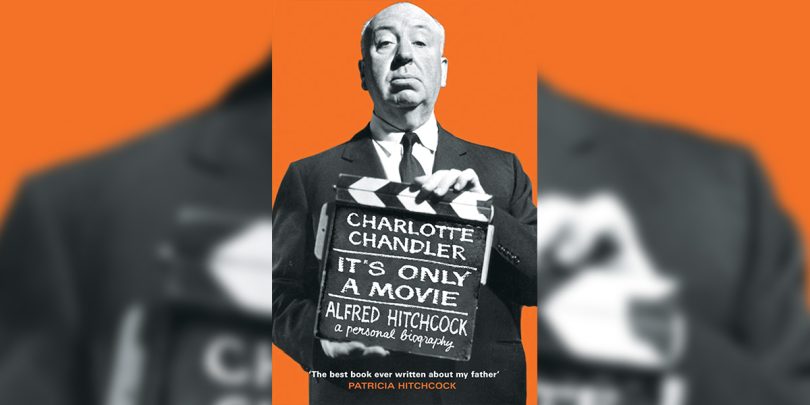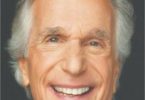He may have died in the year 1980, but the legacy of film director Alfred Hitchcock lives on even after his death. He had a career that lasted over fifty years as a film director at a time when cinema was hardly 75! In order to know what made him stand out amongst a lot of great filmmakers and why he is still remembered as a genius, one must go through Charlotte Chandler’s brilliant biography of the veteran filmmaker.
Titled It’s only a movie – Alfred Hitchcock: A Personal Biography, this book covers everything from Hitchcock’s personal life to his professional career. Laced with quotes taken by the author, it gives the feeling of an autobiography at times and tells you all there is to know about the man behind movies that are considered classics today. After all, who would not want to know about the making of films like 39 Steps, Rear Window, Vertigo, Psycho, North by Northwest, The Birds, and others that inspired generations that came after Hitchcock.
The author beautifully breaks down Hitchcock’s life story in these pages through his marvelous movies and divides the book into four different sections. Each section tackles the films he made during that particular era, and how those films helped him become a better director. At first, he was the Assistant Director his directors hated, then he became the Director who believed in the power of the storyboard, and finally, he became the filmmaker who made films for both the present and the future generation.
Unlike his contemporaries, Alfred Hitchcock stuck to suspense as his favored genre and although he dabbled in thrillers, romantics, and even black comedy, he was known as the Master of Suspense throughout his career. The author talks about each and every film of the late director, with comments from the subject as well as the actors, actresses and the people who were part of that film, giving it the authenticity, a reader requires.
This book takes the readers down memory lane when movies were simply made for entertainment. How he made Rope, the first major Hollywood film that was made as a one-take shot, or why he preferred lesser-known actors to A-listers, Hitchcock’s comments are well-preserved in these pages by the author. Be it the merry-go-round sequence of Strangers on the Train, or the 3D effects in Dial M For Murder, ‘Hitch’ talks about everything that happened on the screen, explaining his point of view with clarity.
The author also shares details about Hitchcock’s wit and wisdom, while also informing the readers that their favorite director was a prankster, who didn’t stop even in his old age. As for the book’s title, the author uses ‘it’s only a movie’ because that was something the director would always say when his actors took themselves too seriously.
One must commend the author Charlotte Chandler here for she talks to most of Hitchcock’s associates and weaves a web of quotes that reveal a different side of the director. From Cary Grant to Ingrid Bergman, Gregory Peck to Kim Novak, Sean Connery to Joan Fontaine, whoever had something good to say for Hitch, the author captured it. She also managed to speak to Tippi Hedren and her daughter actress Melanie Griffith who are the only ones who had bad things to say about The Birds director, giving diversity to this biography.
Not only does this book cover the glory days of Hitch’s career, but it also features those forgettable films that the director made either as an overconfident filmmaker or as someone who wanted to experiment with ahead-of-his-time techniques. His flick Suspicion had a point-of-view shot that would stand apart even decades later, he conceived Dial M For Murder as a 3D venture when 2D was the norm, and he deliberately made Psycho in Black and White, and this book has the director’s comments regarding these steps. Add to that his failed films between 1920 and 1976, and you get to know things not many of your friends do about the man who made the audience scared of Birds.
Keeping aside what Hitchcock’s family, colleagues, and companions had to say about him, there is a lot about Hitchcock that made him a darling of every collaborator, and this book brings those stories to the fore. Why was he always dressed in a suit, how many suits did he own, why was he afraid of driving a car and where did he love to eat the most, this book answers such questions about the self-declared ‘frightmare’ expert. It also tells the readers about some of his films that he remade during his illustrious career, and how the remakes fared!
Although he won many accolades in his last decade, including being Knighted by the Queen of England, Alfred Hitchcock never won an Oscar for Best director despite being nominated on multiple occasions, and that hurt him a lot. However, that didn’t stop him from giving his best to his films, and that included a fascination with the national monuments. If you think that the Statue of Liberty was first used in the climax of a movie recently in Spider-Man: No Way Home, or that there has never been a scene shot at the Mount Rushmore, then you need to brush your film knowledge a lot. Because Alfred Hitchcock had been there, done that long before it was considered normal.
Any book about Hitchcock would be incomplete without the mention of the ‘MacGuffin’, a plot device that defied conventional explanation, and was part of many Hitchcock movies. In this book, the author quotes Hitchcock repeatedly who not only explains the reasons behind ‘MacGuffin’ but also behind some of his iconic sequences in films. His collaborators also confirm here that he hated giving directions to actors, loved making and following storyboards, and knew more about camera lenses than the best cameramen in the business.
The book also explains how he entered films, why he chose to make cameo appearances, and how his life changed once he became a TV personality with Alfred Hitchcock Presents. That’s not all, he always had something shocking in his sleeves that wasn’t known even to his leading men and women. The mood of this biography turns sad by the time it reaches the 1970s for Hitchcock experienced more failures in the late 1960s and the 1970s than he did in his entire career. The author explains the reasons behind Hitch’s decline and his failing health was one of them, if not the main reason.







